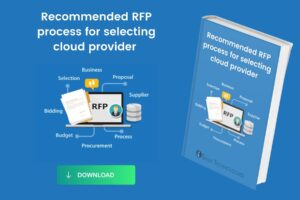Businesses nowadays are increasingly relying on cloud computing to streamline their operations and improve efficiency.
As a result, the demand for professionals skilled in cloud technologies, such as Cloud DataOps, has skyrocketed.
This article aims to provide a comprehensive understanding of the fundamentals of Cloud DataOps training and how it can benefit individuals and organizations alike.
What is Cloud DataOps?
Cloud DataOps refers to the integration of DevOps practices with data engineering and data science principles in cloud-based environments. It focuses on improving the speed, quality, and reliability of data-driven processes by implementing automation, collaboration, and monitoring techniques.
Cloud DataOps professionals are responsible for managing data pipelines, ensuring data integrity, and optimizing data workflows in cloud infrastructures.
The Importance of Cloud DataOps Training
In today’s data-driven world, businesses generate and accumulate vast amounts of data on a daily basis. Effectively harnessing this data is crucial for gaining valuable insights, making informed decisions, and driving business growth.
Cloud DataOps training equips individuals with the necessary skills to navigate complex cloud environments, design efficient data pipelines, and leverage cutting-edge tools and technologies.
Key Components of Cloud DataOps Training
- Cloud Infrastructure: Understanding the fundamentals of cloud platforms such as Amazon Web Services (AWS), Microsoft Azure, or Google Cloud Platform (GCP) is essential for Cloud DataOps professionals. Training programs cover various cloud services, storage options, and security measures to ensure data integrity and compliance.
- Data Pipeline Management: Cloud DataOps training emphasizes the design and management of data pipelines. Participants learn how to extract, transform, and load (ETL) data from various sources, ensuring smooth data flow and efficient processing.
- Automation and Orchestration: Automation plays a vital role in Cloud DataOps. Training programs provide insights into tools like Apache Airflow, AWS Step Functions, or Azure Data Factory, enabling professionals to automate data workflows, schedule tasks, and optimize resource allocation.
- Data Monitoring and Governance: Ensuring the quality and reliability of data is crucial. Cloud DataOps training covers techniques for data monitoring, error handling, and data governance, enabling professionals to detect anomalies, resolve issues, and maintain data integrity.
- Collaboration and Communication: Cloud DataOps professionals work in cross-functional teams. Effective collaboration and communication skills are essential for successful project execution. Training programs often include teamwork exercises, communication workshops, and best practices for collaboration in cloud environments.
Benefits of Cloud DataOps Training
1. Enhanced Career Opportunities
As organizations increasingly adopt cloud technologies, the demand for skilled Cloud DataOps professionals continues to grow. By acquiring expertise in this field, individuals can unlock a wide range of exciting career opportunities.
Cloud DataOps training serves as a solid foundation for roles such as Cloud Data Engineer, DataOps Architect, or Cloud Solutions Architect.
2. Improved Efficiency and Scalability
Cloud DataOps training equips professionals with the knowledge to design and implement scalable data pipelines. By leveraging cloud platforms’ elasticity and scalability, organizations can process and analyze large volumes of data more efficiently. This leads to faster insights, improved decision-making, and increased operational efficiency.
3. Data-Driven Decision Making
Cloud DataOps training enables individuals to harness the power of data for informed decision-making. By understanding data engineering principles and utilizing advanced analytics tools, professionals can derive valuable insights from complex datasets.
This empowers businesses to make data-driven decisions, gain a competitive edge, and identify new growth opportunities.
4. Streamlined Collaboration
Effective collaboration is vital in data-driven projects. Cloud DataOps training emphasizes collaboration practices and tools, enabling professionals to work seamlessly with data scientists, engineers, and other stakeholders.
By fostering a collaborative environment, organizations can accelerate project delivery, enhance team productivity, and drive innovation.
Conclusion
Cloud DataOps training plays a pivotal role in equipping individuals with the necessary skills to excel in today’s data-driven business landscape.
By mastering cloud infrastructure, data pipeline management, automation techniques, and collaboration practices, professionals can contribute to organizational success and stay ahead in a rapidly evolving industry. Embracing Cloud DataOps not only opens up exciting career opportunities but also enables businesses to unlock the true potential of their data.





